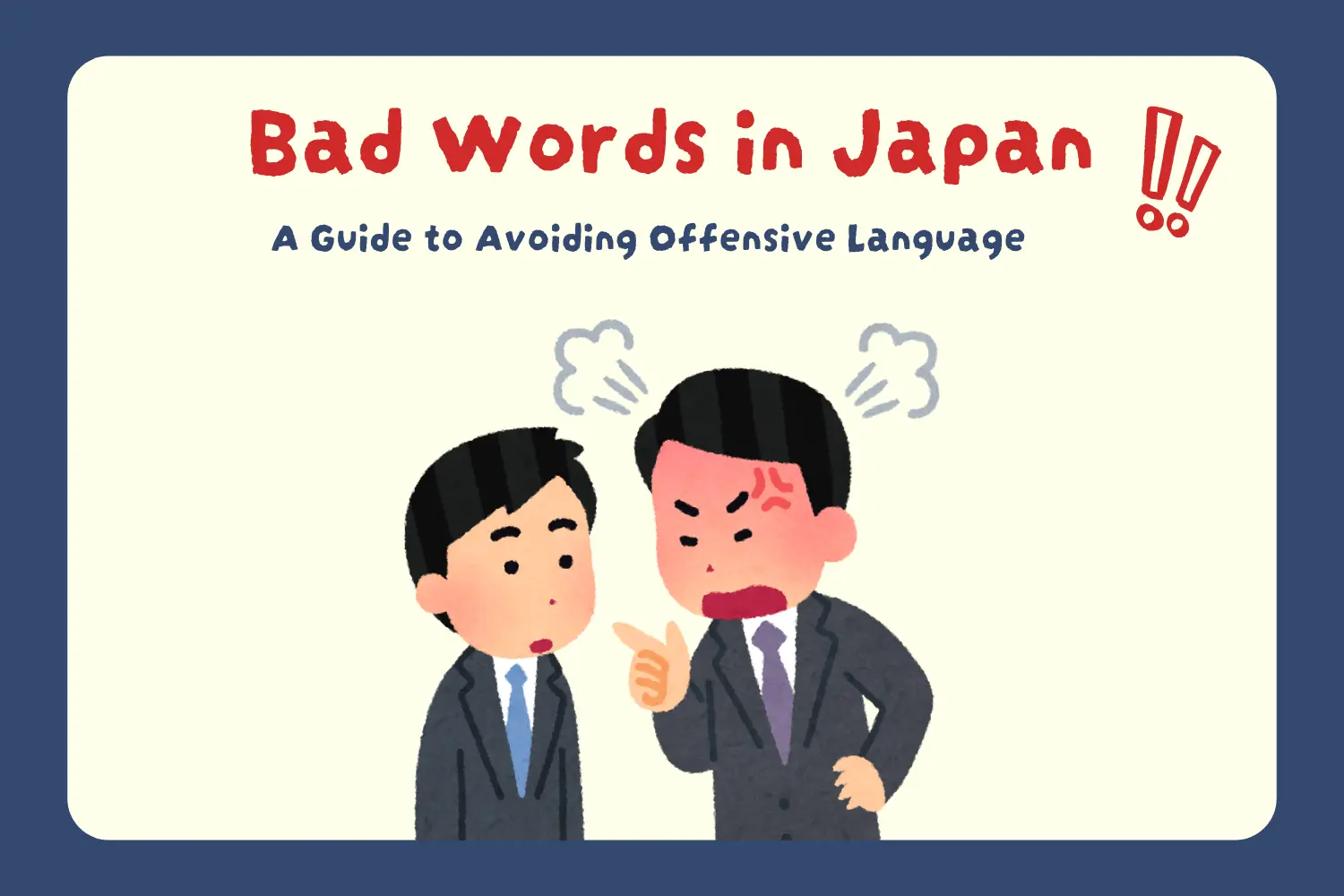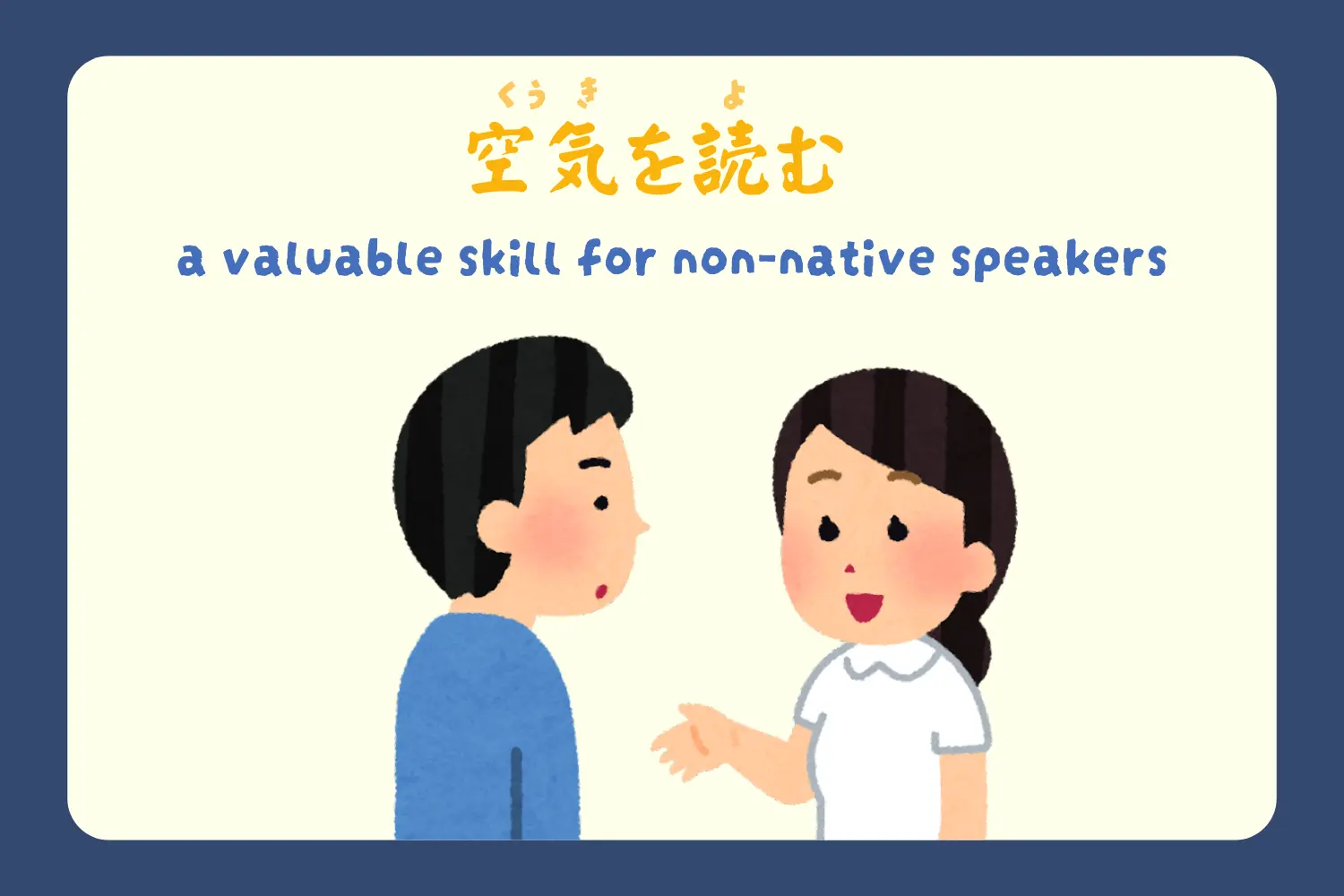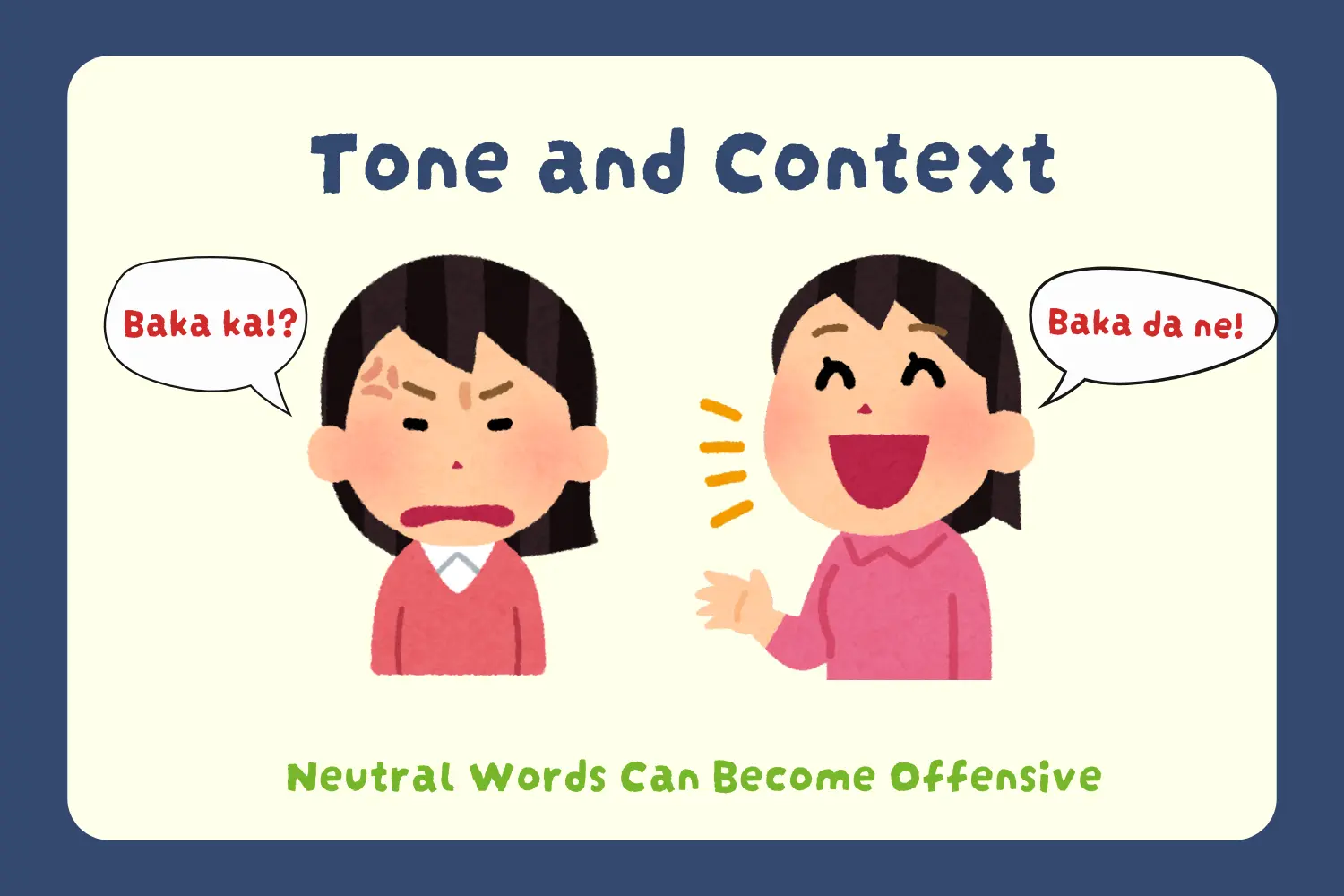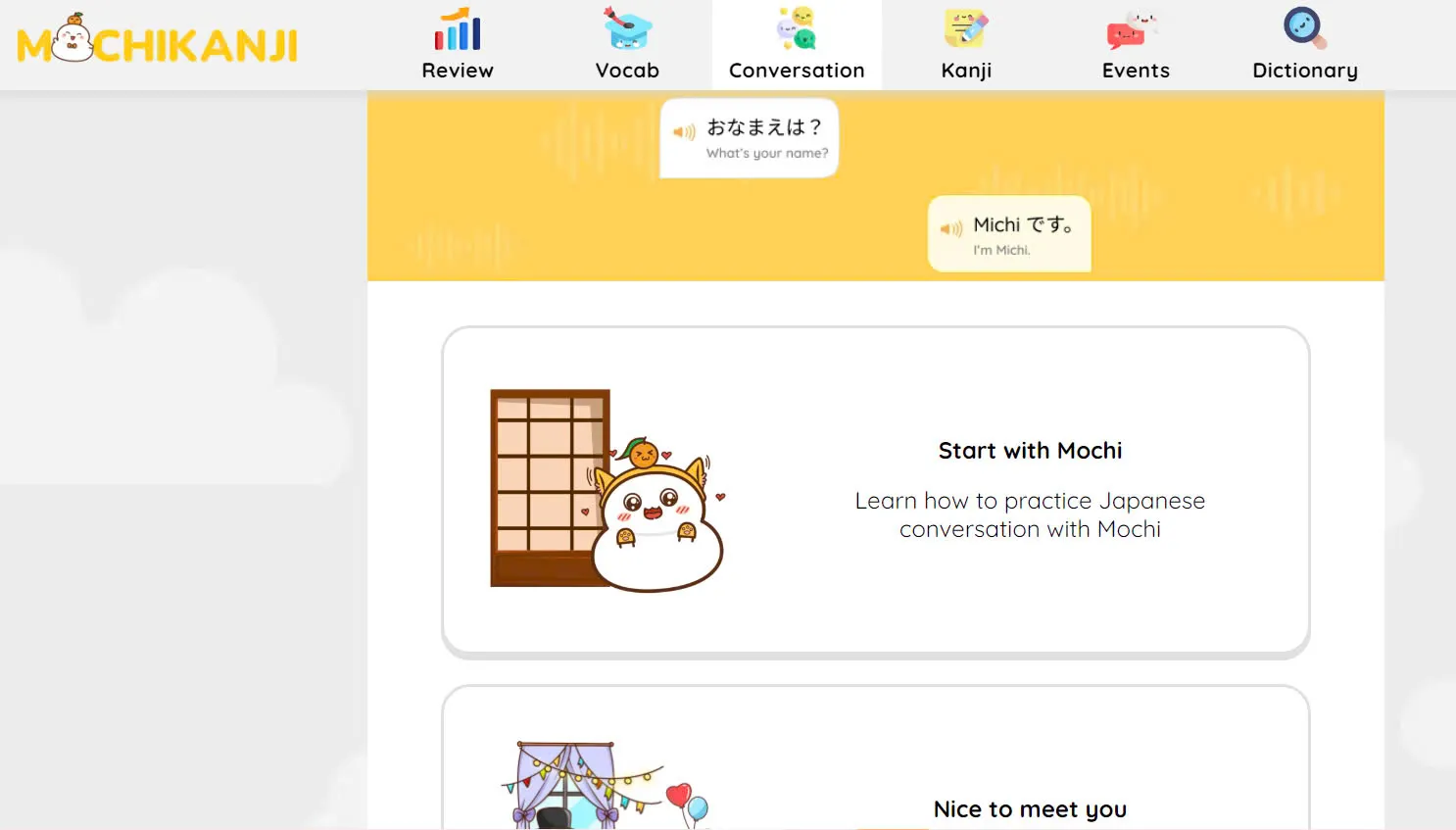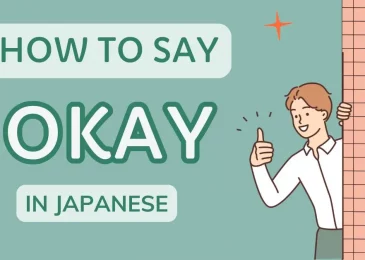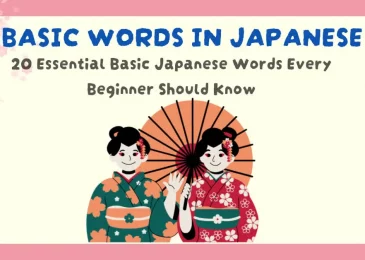Language goes beyond just words—it’s a reflection of culture, values, and social norms. When learning Japanese, understanding what constitutes offensive or inappropriate language is critical. Unlike English or other languages, where bad words may be direct and explicit, Japanese offensive language often depends on tone, context, and subtle cultural cues. Misusing a word, tone, or phrase can easily disrupt the harmony (wa) that Japanese society holds dear.
In this guide, we’ll delve into Japanese bad words, their cultural implications, and practical strategies to avoid offending others while navigating this beautiful language.
Cultural Context of Bad Words in Japan
Japan’s culture prioritizes politeness, harmony, and respect, which directly impacts how people communicate. Offensive words in Japanese are less about vulgarity and more about the delivery and situation. Direct insults or cursing are uncommon; instead, people convey dissatisfaction or anger through tone, pauses, or indirect language.
For example:
• A subtle phrase like zannen desu (残念です) translates to “That’s unfortunate,” but the tone can imply disappointment or frustration.
• Saying chotto… (ちょっと…) with hesitation can indicate disapproval without directly confronting someone.
Understanding these nuances is vital for avoiding unintended disrespect. Learning to read the room (kuuki o yomu, 空気を読む) is a valuable skill for non-native speakers.
空気を読む (kuuki wo yomu)
It means understanding unspoken social cues and adjusting behavior accordingly to maintain harmony.
In avoiding offensive language, 空気を読む helps determine the appropriateness of words and tone:
• In formal settings, avoid casual pronouns like omae (お前) or slang. Use polite forms or omit pronouns.
• Among friends, casual expressions like baka (バカ) may be acceptable if used jokingly, but tone is critical.
Common Categories of Japanese Bad Words
Insults
Insults in Japanese are often less explicit but can still carry a significant sting depending on tone and delivery:
• Baka (馬鹿): “Stupid” or “idiot.” Common in anime, but it can be rude in real conversations.
• Aho (アホ): A similar term meaning “fool,” primarily used in Kansai dialect. While it may sound playful in Kansai, it can be offensive elsewhere.
Examples:
• Baka mitai! (バカみたい!) – “You’re so stupid!” (Jokingly acceptable among close friends but rude otherwise.)
• Aho ka! (アホか!) – “Are you an idiot?” (Kansai dialect, but avoid it unless very familiar with someone.)
Words to Avoid in Formal Settings
Pronouns in Japanese vary in politeness, and some can be highly offensive depending on the context:
• Kisama (貴様): Originally a respectful term for “you,” now used as an aggressive or confrontational pronoun.
• Teme (てめえ) and omae (お前): Informal “you” pronouns, but disrespectful when addressing strangers, superiors, or elders.
Examples:
• Kisama wa nani o yatteru!? (貴様は何をやってる!?) – “What the hell are you doing!?” (Extremely rude.)
• Instead, use anata (あなた) or omit pronouns entirely, which is common in Japanese.
Vulgar Expressions
Although Japanese has fewer explicit swear words than English, certain expressions are considered vulgar:
• Kuso (くそ): “Damn” or “sh*t.” Often used in frustration but inappropriate in polite settings.
• Yarou (野郎): Roughly translates to “bastard” or “jerk,” often used in heated moments.
Examples:
• Kuso yarou! (くそ野郎!) – “You bastard!” (Avoid using it unless you’re in a fictional anime scene.)
• Kuso! (くそ!) – “Damn!” (It might slip out in frustration but is generally frowned upon.)
Derogatory Terms
Some words directly insult someone’s appearance or behavior and are highly inappropriate:
• Busu (ブス): A derogatory term meaning “ugly,” usually directed at women.
• Debu (デブ): A rude word for “fat.”
Examples:
• Ano busu wa dare? (あのブスは誰?) – “Who’s that ugly person?” (Extremely disrespectful.)
• Debu janai ka? (デブじゃないか?) – “Isn’t that person fat?” (Avoid completely.)
Tone and Context: Neutral Words Can Become Offensive
Japanese relies heavily on tone and context, so even neutral words can sound rude in certain situations. For instance:
• Omae (お前): Neutral among friends but rude when directed at a superior.
• Baka (馬鹿): Can be playful or insulting, depending on the speaker’s tone.
Example:
• Playful: Baka da ne! (バカだね!) – “You’re such a fool!” (said jokingly).
• Insulting: Baka ka!? (バカか!?) – “Are you an idiot!?” (said in anger).
Offensive language in Japan can damage relationships or even harm your reputation. The concept of maintaining harmony (wa) is critical, especially in professional or social settings. While friends might forgive casual rudeness, strangers or colleagues will likely see it as a lack of respect.
For example:
• Swearing during a business meeting could ruin your credibility.
• Using slang like kuso or yarou in public may attract negative attention.
Cultural Alternatives to Express Anger or Frustration
Japanese people often express frustration or dissatisfaction through indirect phrases or non-verbal cues. Instead of resorting to bad words, consider using polite expressions:
• Chotto… (ちょっと…): “A little…” Used to imply disapproval gently.
• Sou desu ka… (そうですか…): “I see…” Can show subtle disagreement.
• Zannen desu (残念です): “That’s unfortunate.” A calm way to express disappointment.
These alternatives maintain respect and keep interactions harmonious.
Do Japanese People Use Bad Words?
While bad words exist in Japanese, their usage is far more restrained compared to many other languages. Japanese culture emphasizes politeness and harmony (wa), so explicit vulgarity is generally avoided in everyday interactions. Instead, tone, context, and body language play a significant role in expressing annoyance or anger.
For example:
• “Urusai” (うるさい): Literally means “noisy” or “loud,” but can imply “shut up” if said with a harsh tone. Its impact depends heavily on the delivery.
• “Kuso” (くそ): A mild swear meaning “damn” or “crap.” It’s more common in informal conversations but still frowned upon in formal settings.
Japanese people often use indirect phrases to communicate displeasure without being explicitly offensive. For instance:
• “Chotto…” (ちょっと…): Meaning “a little,” this phrase, combined with a pause, can convey dissatisfaction or hesitation.
• “Mendokusai” (めんどくさい): Translates to “bothersome” or “troublesome” and can express mild frustration without being directly rude.
Why the Subtlety?
Japanese social norms discourage confrontation and encourage maintaining respect, especially in professional or public settings. Even when angry, many prefer non-verbal cues, like avoiding eye contact or letting their tone imply irritation, over outright verbal aggression.
This cultural restraint reinforces the importance of tone, context, and knowing when and where certain words are acceptable. Understanding this subtlety ensures you navigate conversations without unintentionally offending others.
Tips for Avoiding Offensive Language
Focus on Polite Forms
Use keigo (敬語), the Japanese formal speech system, in professional or formal settings. Master sonkeigo (respectful speech), kenjougo (humble speech), and teineigo (polite speech) to communicate appropriately and respectfully.
Avoid Slang Until Fluent
Slang like yabai (やばい) or uzai (うざい) can carry unintended meanings. Stick to formal language until you’re confident about slang nuances.
Observe Native Speakers
Learn from how native speakers navigate tone and context. For example, instead of directly saying “no,” they might use chotto muzukashii desu (a little difficult) to decline politely.
Practice Neutral Responses
Use phrases like wakarimashita (I understand) or sō desu ne (That’s right) instead of slang or potentially rude expressions. They keep conversations polite and professional.
Avoid Casual Pronouns
Refrain from using pronouns like omae (お前) or kimi (君), as they can sound rude. Instead, omit pronouns or use anata (あなた) sparingly.
Apologize When in Doubt
When unsure, use sumimasen (すみません) or moushiwake gozaimasen (申し訳ございません) to apologize politely. It’s always better to err on the side of caution.
Pay Attention to Tone and Non-Verbal Cues
A wrong tone can make even polite words sound offensive. Pair your speech with appropriate bowing or gentle expressions to convey respect.
Avoid Literal Translations
Avoid directly translating phrases from your native language, as they might carry unintended connotations in Japanese. Opt for culturally appropriate expressions instead.
Learn Polite Alternatives
Replace harsh phrases with softer expressions. For example, say zannen desu (That’s unfortunate) instead of directly voicing disappointment.
Seek Feedback
Ask native speakers or language partners for advice on phrasing. This helps refine your communication skills and avoid unintentional rudeness.
These concise tips will help you navigate Japanese conversations respectfully and confidently.
MochiKanji: Elevate Your Japanese Communication Skills with Real-Life Scenarios
When learning Japanese, mastering Kanji is just one piece of the puzzle. The ability to apply it in real-life contexts, especially when navigating culturally nuanced situations like apologies or avoiding offensive language, is equally important. MochiKanji’s Conversation Mode bridges this gap, making Kanji learning practical and contextually relevant.
What Makes MochiKanji’s Conversation Mode Unique?
• Real-World Dialogue Practice: Learn how Kanji is used in everyday conversations, helping you understand context-sensitive expressions and avoid unintentional rudeness.
• Cultural Nuances in Focus: Practice polite and respectful speech, such as using formal apologies or avoiding offensive terms, through interactive scenarios.
• Dynamic Role-Playing Exercises: Engage in simulated conversations where you can refine your tone, word choice, and understanding of Japanese etiquette.
• Instant Feedback: Receive corrections and suggestions to ensure your responses align with cultural expectations.
Whether you’re learning to apologize with the correct tone or navigating sensitive conversations, MochiKanji’s Conversation Mode equips you with the confidence to communicate effectively and respectfully in Japanese. It’s an invaluable tool for learners who want to go beyond vocabulary and truly immerse themselves in the cultural essence of the language.
Conclusion
Understanding and avoiding bad words in Japanese is essential for respectful communication. By learning cultural nuances, you can avoid offending others and build positive relationships. Focus on polite speech, observe how native speakers communicate, and practice respectful expressions to navigate Japanese conversations confidently.
Learning Japanese is about more than vocabulary—it’s about understanding the culture and values behind the language. By mastering respectful communication, you’ll not only improve your Japanese skills but also deepen your appreciation for Japanese society.

